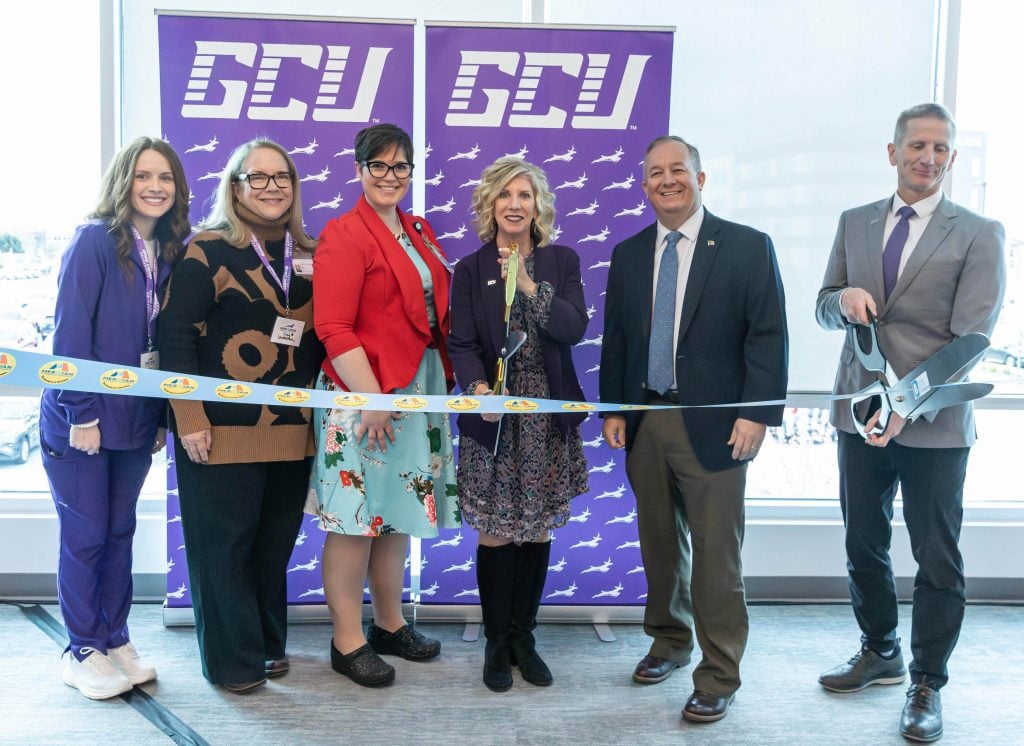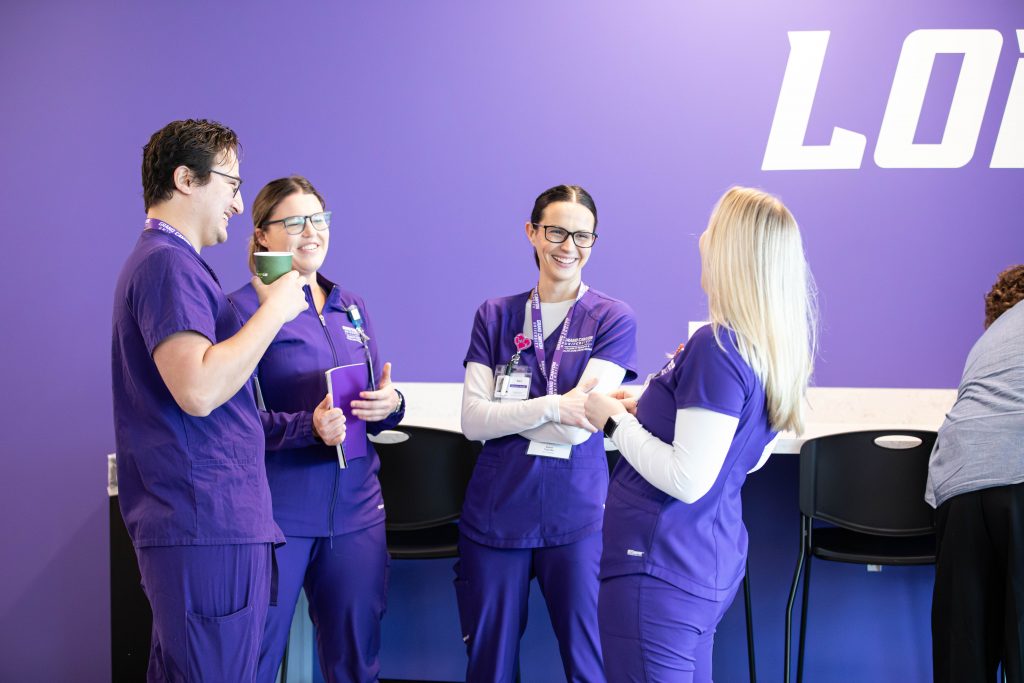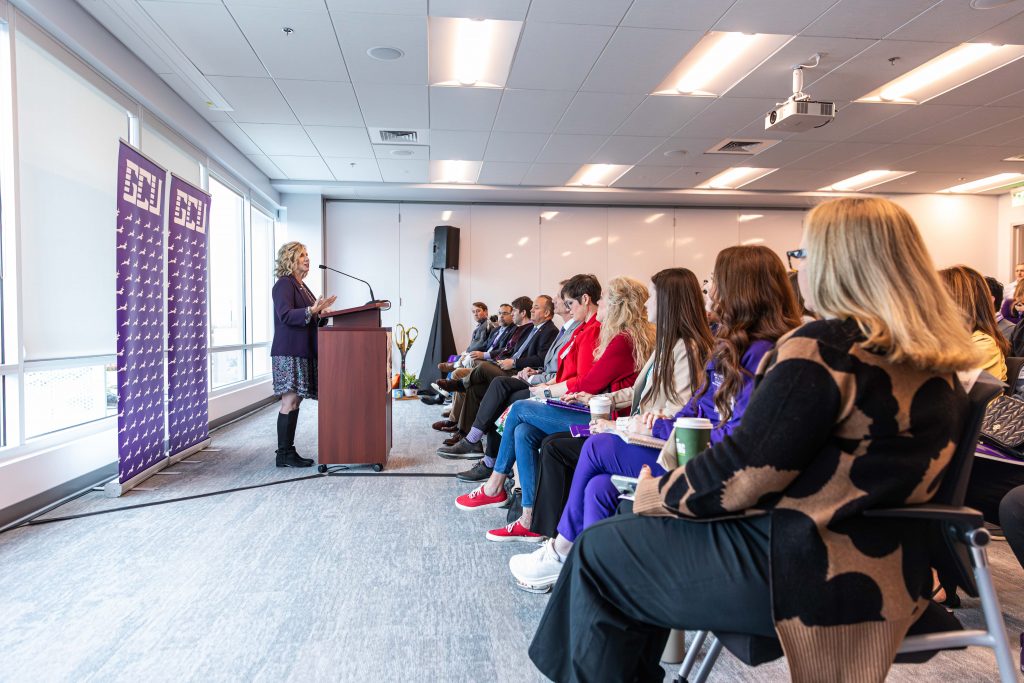
Photos by Tanielle Gilbert
Grand Canyon University continues to address the national nursing shortage by ramping up its Accelerated Bachelor of Science in Nursing program, opening one of its newest hands-on sites with a recent ceremony in Meridian, Idaho.
The location opened its doors to its first 36 students in fall 2024.

“There is a lot of interest and excitement in our ABSN program in Idaho,” said Dr. Lisa Smith, dean of GCU’s College of Nursing and Health Care professions. “We received great support from the Meridian/Boise communities. I believe we can expect strong interest to enroll in the program.”
The Idaho facility is one of nine ABSN sites that have opened since 2020 to prepare nurses for the workforce and fill the nursing pipeline in five states. Other locations are in Sun City, Tucson, Chandler and Phoenix, Arizona; Sandy, Utah; Henderson, Nevada; St. Louis, Missouri; and Albuquerque, New Mexico.
In Health Resources and Services Administration statistics shared by the American Association of Colleges of Nursing, federal authorities expect a shortage of 78,610 full-time registered nurses this year in the United States and a shortage of 63,720 by 2030.
Idaho was listed among the 10 states expected to have the largest registered nurse shortages by 2035: Washington (26%), Georgia (21%), California (18%), Oregon (16%), Michigan (15%), Idaho (15%), Louisiana (13%), North Carolina (13%), New Jersey (13%) and South Carolina (11%).
Students in the hybrid ABSN program, designed typically for those who already have completed some college credits and are wanting to re-career as a nurse, delve into their didactic learning online.
They complete their hands-on learning at the ABSN site, where they complete skills labs, such as giving injections or inserting an intravenous line, and participate in immersive simulation scenarios with high-fidelity, lifelike manikins and standardized live patient actors. These experiences are followed by debriefings with trained simulation faculty and fellow students.

They also complete clinical rotations at local health care facilities alongside professional nurses.
In Idaho, the university’s ABSN location is partnering with Saint Alphonsus Health System for those clinical experiences.
More sites are planned across the country in markets where there is a critical need for more nurses. This summer, a grand opening ceremony is planned for the site in Albuquerque, New Mexico, which began accepting students in January, and a new ABSN location opens in Lake Mary, Florida, in May.
By the end of 2025, the university anticipates opening its next ABSN site in Englewood, Colorado, in the Denver area. The Colorado location is anticipated to open in September.



































































